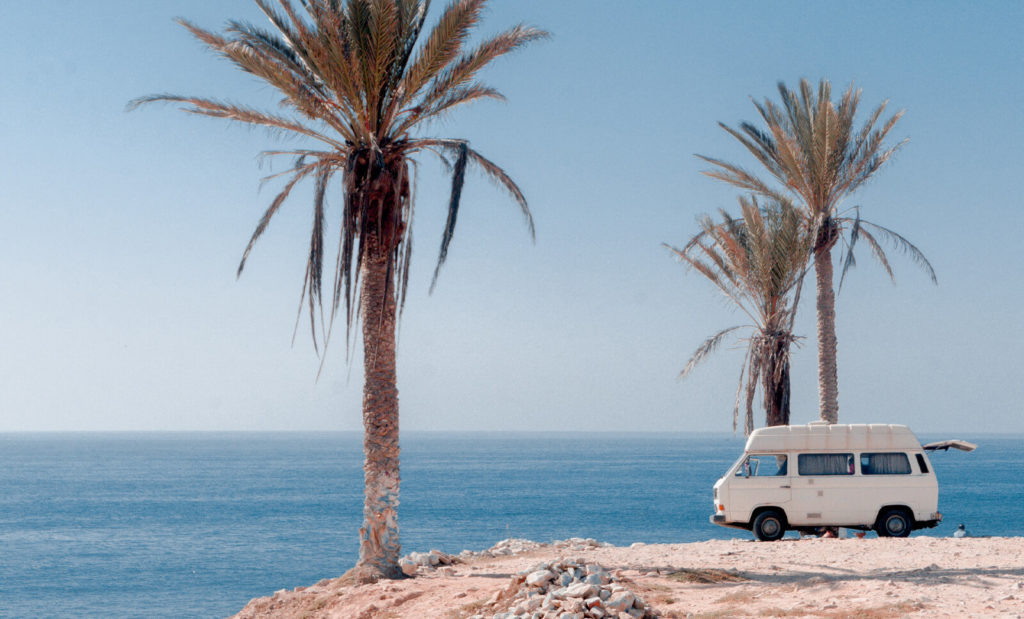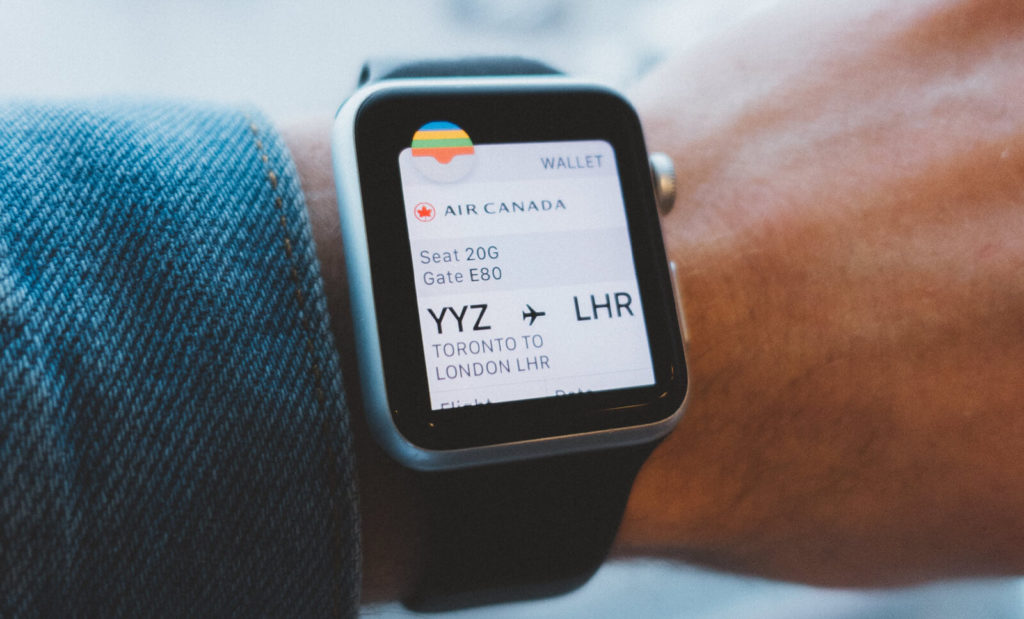Travel has so many benefits, both to host countries and the people who travel to them. As one of the world’s largest industries, tourism powers economies, providing millions of people with jobs worldwide. On a more personal scale, tourism provides travelers and digital nomads like me (and you!) with opportunities to learn about other cultures, challenge stereotypes, and create cross-cultural connections.
But travel can also harm destinations, people, animals, and their environments. As a digital nomad, you’re not exactly a tourist, but you are still traveling and taking part in tourism, so it’s good to be aware of how to travel more sustainably to limit your impact on the destinations you visit.
What is Sustainable Tourism?
Sustainable tourism attempts to minimize the negative impact of travel on a destination, taking into consideration the potentially harmful effects of tourism on nature, culture, and economies.
In recent years, sustainable tourism has been growing in popularity and it is now easier than ever to ensure that you travel sustainably when working abroad as a digital nomad. Many hotels and tour companies will now market themselves as sustainable, meaning that they adhere to sustainable and eco-friendly practices. There are also certifying bodies such as LEED and Green Globe who check those sustainability standards are being upheld.
Why Should You Consider Sustainable Travel and Tourism?
Your decision to travel as a digital nomad does have consequences on the environment and on the people in the destinations you visit. As someone who is committed to a lifestyle of movement, the best thing you can do is to be aware and responsible when you travel. That is why we have put together this list of sustainable travel tips to help you on your journey of being a more sustainable digital nomad!
25 Sustainable Travel and Tourism Tips
- Travel by bus, train, or overland instead of flying

Flygskam is a Swedish word that describes the feeling of flight shame in the new age of climate action. Be like the Swedes and be conscious of the impact of your travels. Busses and trains are more sustainable options for short-haul travel.
- Take only memories and photos
In Portugal, the tiles that make Porto famous were, in the past, taken as tourist souvenirs, diminishing the cultural heritage of the city. In Sri Lanka, the coral reef was once sold off as jewelry to travelers, destroying the beautiful reefs that are already endangered there. Over time, these types of souvenir deplete the natural and cultural heritage of destinations. Try to avoid taking anything from your destination that could be missed!
- Don’t engage in animal tourism
Animals cannot consent to their part in tourism and are often exploited by the tourism industry. If you absolutely must include animals in your itinerary, opt for an experience that allows you to see animals in their natural habitat, such as a safari. Avoid zoos and activities that let you touch or ride the animals.
- Choose eco-friendly hotels
Some hotels have committed to eco-friendly values. You can research this ahead of time to find a hotel that matches your commitment to sustainability.
- Pick eco-friendly tour companies

Many tour companies are also taking a more sustainable approach. Try to support these businesses that are committed to being green!
- Carry a reusable water bottle
Plastic water bottles are polluting our planet, and individual consumption quickly adds up! Carry a reusable water bottle when traveling, and use apps such as Refill My Water or Tap that will show you where you can fill your bottle for free when traveling.
- Bring metal or wooden straws with you
If you love to drink cold drinks when traveling somewhere hot, bring your own straws! Pack them in your day pack or purse when you go out and ask for everything without a straw.
- Carry reusable bags instead of taking plastic ones
If you buy groceries or go shopping, you’ll likely get offered plastic bags. Come prepared with reusable fabric ones so that you can avoid this.
- Favor green destinations
Destinations such as Costa Rica and Sweden have sustainability at their core and are doing their bit to protect both environment and culture. Do your research on which destinations have a stronger sense of sustainable responsibility.
- Travel less

Let’s be honest, you’re not just going to stop traveling, but you can be conscious about exactly how much traveling you are doing. Opt for slow travel. Spend longer in a destination soaking up the culture and taking your time to get to know the area. Traveling less reduces your carbon footprint.
- Buy specialist travel gear second hand
First-time travelers tend to over-pack for their first big trip. It’s common to see people carrying around unused hiking boots and other specialist equipment that they bought brand-new and now can’t find an actual use for. Think carefully and practically before you make new travel purchases, and where possible, buy second hand.
- Get involved in beach clean-ups
Where there is a beautiful beach, there is always litter. But many thoughtful locals and travelers alike have started a global movement of beach clean-ups. If there isn’t one happening at a beach near you – go ahead and start one! Beach clean-up days can be easily advertised through posters put up in the local area and are a great way to meet new friends, create a sense of community, and keep the environment clean. At the end of it, you get to enjoy a beautiful beach, litter-free!
- Try out plogging!
Don’t have access to a beach? That doesn’t mean you can’t get involved in clearing litter. The trend of plogging involves jogging whilst collecting trash. Bring gloves and a trash bag and combine your exploration of nature with a light jog and a good dose of responsible activity!
- Bring your own cutlery and food on the plane
Airplane meals are a plastic bonanza. From the food containers to the cutlery, there are so many single-use plastics that go into it. To avoid using any of this plastic, come prepared with your own food from home and wooden cutlery.
- Eat the local cuisine

Sometimes you just miss food from home, or it’s easier to eat food that feels familiar to you, but imported produce can leave a big carbon footprint. It’s better to make the most of the local fare. This will both enhance your travel experience and be more friendly to the planet in the long run.
- Don’t take part in voluntourism
Voluntourism can take jobs away from local people and can have very negative effects on the host country. Voluntourism that involves children, in particular, can be exploitative, dangerous, and cause long term psychological damage, even when you think you’re doing something good. Just don’t do it.
- Avoid all-inclusive packages
Holidays that offer everything as an all-inclusive package monopolize the market and prevent tourist money from spreading around the local economy, reaching smaller businesses that might be able to benefit from the extra income.
- Reduce your use of air conditioning
Sometimes it is hard to adjust to the heat in a tropical country when you first arrive, but the best way to adapt is to let your body get used to the new climate, not to blast AC all day long! If you do need to use AC, try using it sparingly: shut all the doors and windows and cool the room down with the AC and then turn it off. Try to avoid sleeping with the AC on. You’ll both catch a cold and impact the environment at the same time!
- Don’t give out gifts to street children
In countries where homelessness among children is high, it can be common to be confronted by children asking for gifts (monetary or otherwise). Any money or items collected by these children is usually taken by an adult who is exploiting them and so it is not wise to engage in this. Politely and gently tell them no, and if you would like to help out and get involved, do so through an organized charity that can offer appropriate aid.
- Don’t print out boarding passes

This is just a waste of paper and everything is digital now anyway and can all be done on your phone.
- Use public transport rather than taxis
Using public transport in a new country can be confusing, but also a very empowering way to take on a new city like a true local! This is both a cheaper and more sustainable way of traveling than just taking a taxi or Uber.
- Use natural products
Your toiletries can have toxic chemicals in them that are damaging to the environment. Be more conscious of preserving beautiful destinations by investing in toiletries made from natural ingredients. Bonus points if your toiletries use alternatives to plastic too!
- Do not wear sunscreen in the ocean
Sunscreen damages coral reefs and it is not advisable to wear it when swimming in the ocean. If you need to wear sunscreen, opt for reef-safe products made from natural ingredients.
- Be respectful of local customs
Be sure to read about your destination ahead of visiting. Find out what is and isn’t appropriate to wear, say, and do. For example, in many Buddhist countries it is considered disrespectful to turn your back on Buddha, so taking selfies with Buddha statues is not appropriate. Being aware of these kinds of cultural rules before traveling is essential to the protection and preservation of culture.
- Pledge to travel better!

Commit yourself to travel more sustainably and share that with others in your community or social media groups so that they can be inspired to travel more sustainably too!
There are many ways to travel more sustainably, and this list is by no means exhaustive, but I hope that this inspires you to make some small changes to the way you travel. If you’d like to learn more, you can always research each destination individually to find out the best destination-specific sustainable tips before you go.
Enjoy your journey safely and responsibly, so that digital nomads can enjoy these wonderful destinations for years to come!
Where to next? Find flexible month-to-month rentals across the globe on Anyplace.





